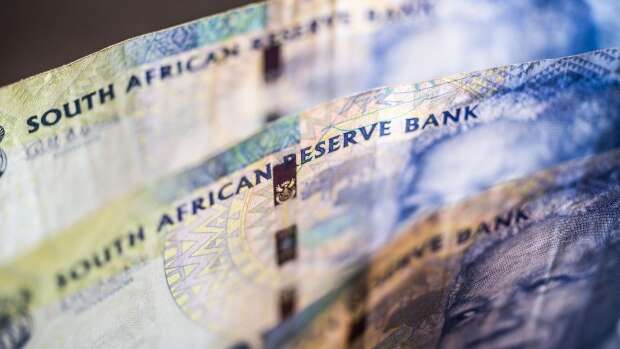In a bold and unprecedented move, South Africa’s National Treasury is mulling over the possibility of withdrawing up to half of the substantial 497 billion rand ($27.3 billion) contingency reserves held by the central bank. This strategic maneuver aims to alleviate the government’s mounting debt burden or potentially channel funds towards public-sector wages.
Sources close to the matter, requesting anonymity as they lack authorization to discuss the issue publicly, reveal that the Treasury and the central bank are on the verge of finalizing the terms for the draw-down from the Gold & Foreign Exchange Contingency Reserve Account. Discussions have been underway with development finance agencies to establish best practices, ensuring that adequate buffers remain intact to guard against unforeseen external shocks. The finer details of the withdrawal are anticipated to be unveiled during the presentation of the annual budget by the Treasury in February.
While the Treasury is preparing a response to requests for comment, the central bank has refrained from offering additional statements beyond Governor Lesetja Kganyago’s confirmation last month that discussions regarding the matter are indeed ongoing.
The timing of this potential withdrawal is crucial, coinciding with South Africa’s upcoming elections and a period of significant strain on public finances. Factors such as an energy shortage and logistical constraints are impeding mining and corporate profitability, resulting in diminished government revenue. Simultaneously, the state contends with escalating debt-service costs and a burgeoning civil-servant wage bill.
In its latest forecast, the Treasury predicts that gross debt as a percentage of gross domestic product will peak at 77.7% in 2025-26, a notable increase from the initial projection of 73.6% in February. Wages, constituting about a third of government expenditure, are a substantial contributor to this financial challenge.
Jannie Rossouw, a professor at Wits Business School at the University of the Witwatersrand, notes that drawing down on the account provides a short-term fix in a low-growth economy like South Africa’s, where spending needs continue to escalate annually. However, he emphasizes the necessity for a more sustainable, long-term solution, advocating for an investment-friendly government that stimulates economic growth and broadens the tax base.
The central bank manages the Gold & Foreign Exchange Contingency Reserve Account on behalf of the Treasury. This account encompasses unrealized profits or losses on reserves incurred through exchange-rate fluctuations, and any gains or losses ultimately accrue to the government.

A research paper by Guido Maia, a finance PhD candidate at the London School of Economics, questions the unusual magnitude of the account by international standards, describing it as “an inefficiently allocated resource: zero-yielding cash liquidity that is not usable, despite being costly to fund.”
Governor Kganyago, in a statement last month, cautioned that realizing profits on the account by selling underlying assets could deplete the country’s reserves, potentially leaving it vulnerable to future shocks.
Concerns have been raised regarding the plan’s implications on the central bank’s independence, as a full withdrawal may necessitate recapitalization by the Treasury. Kganyago dismissed the notion of a hidden “pot of gold” in the Reserve Bank, emphasizing the need for a balanced approach that acknowledges the complexities of the situation.
The Treasury aims to finalize the proposals before next year’s general election, ensuring that strict conditions are in place should the incoming administration consider a change in course. The delicate balance between addressing immediate economic challenges and safeguarding the integrity of financial institutions underscores the nuanced approach required to navigate South Africa’s complex economic landscape.
Source: bnnbloomberg



















Leave a Reply